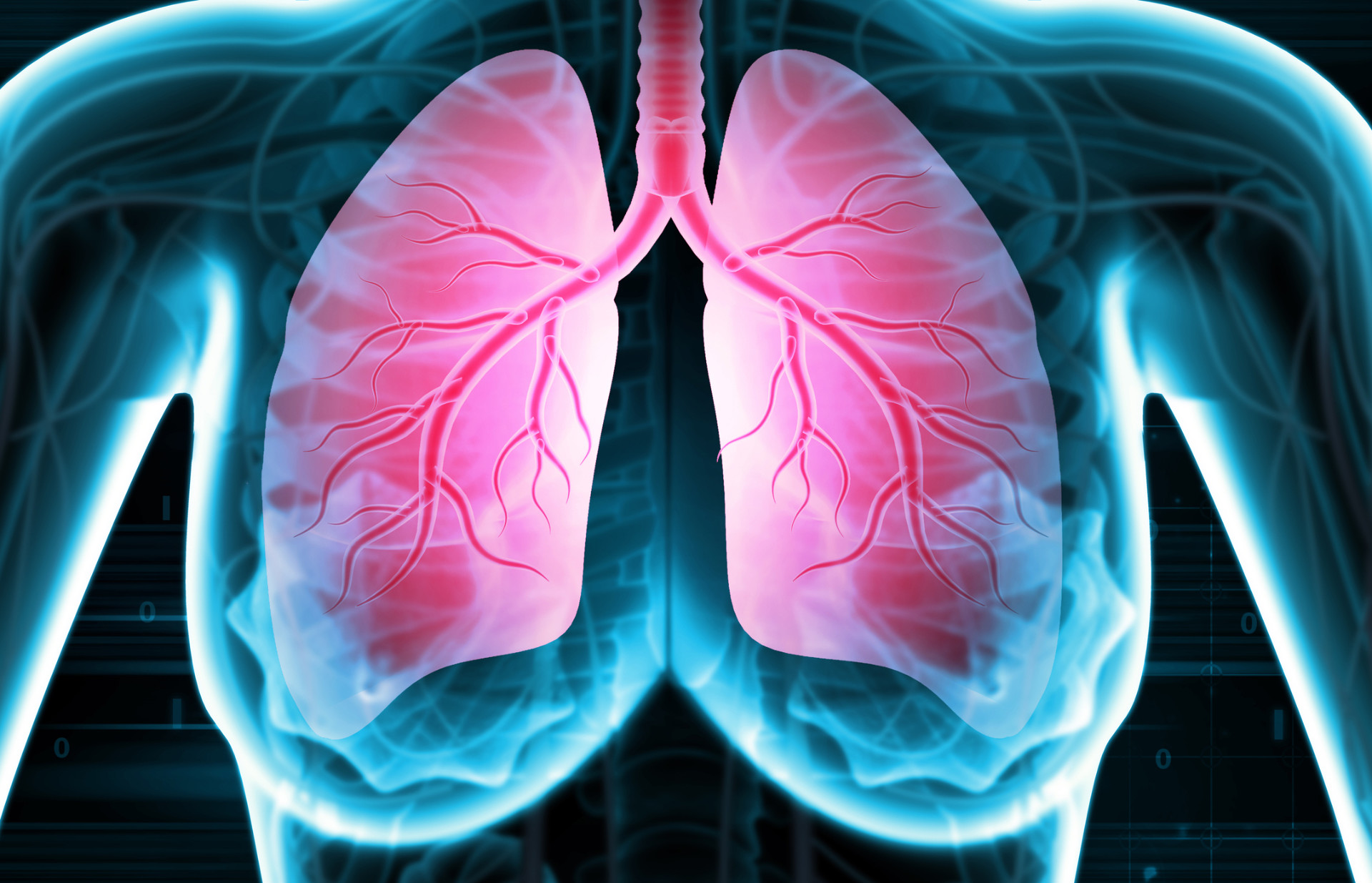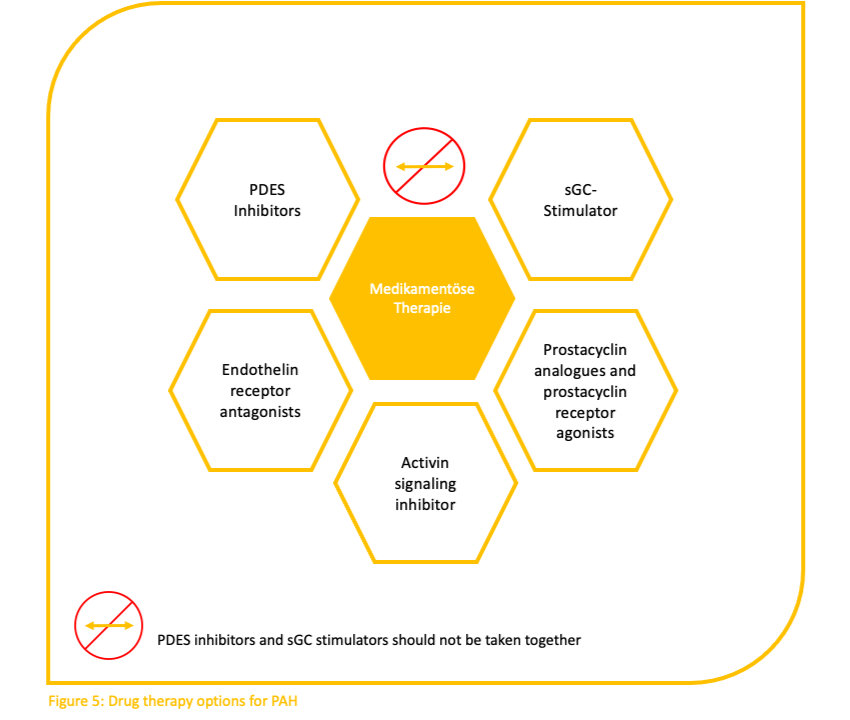
What is pulmonary hypertension?
Pulmonary hypertension (PH) is the term used to describe elevated blood pressure in the pulmonary vascular system. It is a chronic disease that can last a lifetime. From a medical point of view, PH occurs when the mean blood pressure in the pulmonary artery is higher than 20 mmHg at rest. Normally, the mean blood pressure in the pulmonary artery is between 8 and 20 mmHg. The consequence of the increased blood pressure in the pulmonary vessels is the loss of elasticity of the heart, which can lead to right heart failure.
Symptoms of pulmonary hypertension
The symptoms of PH are primarily caused by progressive dysfunction of the right heart. The symptoms can also occur in other clinical pictures.The following symptoms may occur initially during exercise and, as the disease progresses, also at rest:
- Shortness of breath on exertion and/or when bending forward
- Rapid exhaustion
- Sensation of increased, usually accelerated and irregular heartbeats
- Slight admixture of blood when coughing up (hemoptysis)
- Flatulence and nausea triggered by movement
- Weight gain due to water retention
- Fainting (syncope) during or after physical exertion
Treatment options for PAH
Based on various diagnostic parameters, such as the results of the 6-minute walk test and the right heart catheter, the severity of PAH is determined in the PH centers and the course of the disease is assessed. Based on this, a therapy is determined. In addition to medication, training and counseling also play an important role in achieving the treatment goals.
Each PAH medication has a specific mechanism of action that can lead to a reduction in pulmonary hypertension. Your doctor at the PH Center will decide which medication is suitable for you. This may involve treatment with one medication or with more than one medication at the same time.
A lung transplant remains an important treatment option for PAH patients who do not respond to optimized drug therapy.

What do I need to consider with PH?
Physical activity
It is recommended to be physically active even with pulmonary hypertension, but not to overexert yourself. If excessive physical exertion leads to shortness of breath or chest pain, it should be avoided or discontinued. You should always discuss physical training and regular exercise with your doctor and specialists trained in training PH patients. trained specialist staff.
Health
For general health protection, PH patients are recommended to be vaccinated against pneumococci, flu (influenza) and SARS-CoV-2. In addition, the risk of surgery often increases in PH patients. If possible, PH treatment with medication should also be reviewed by the PH specialist should be reviewed and optimized by the PH specialist treating the patient.
Pregnancy
Pregnancy is a sensitive topic – especially if you want to have children. As a PH patient, pregnancy should be avoided as it is associated with a high risk of complications. Talk to your doctor if you would like psychological support on this topic.
Travels
Discuss your travel plans with your doctor. He or she can decide whether a trip is possible based on your state of health and inform you about various precautionary measures.
AT-NON-02524, created August 2024
